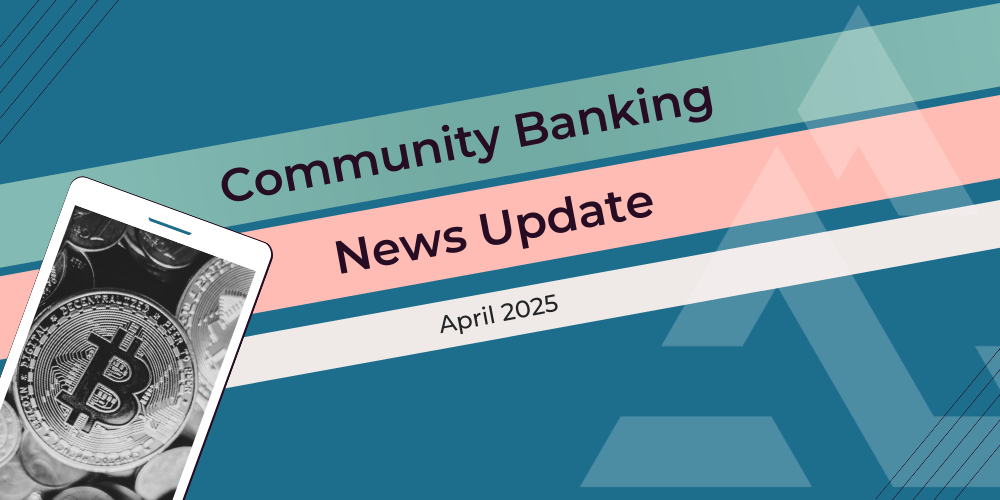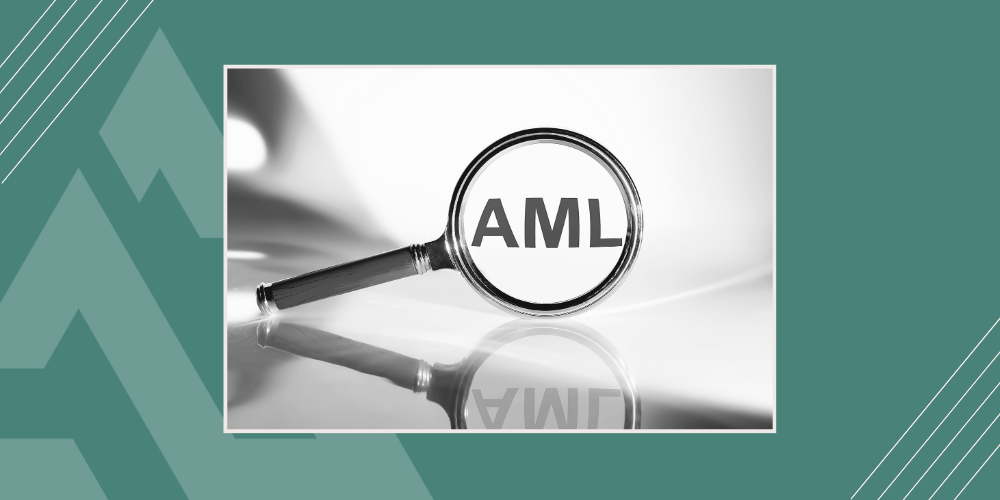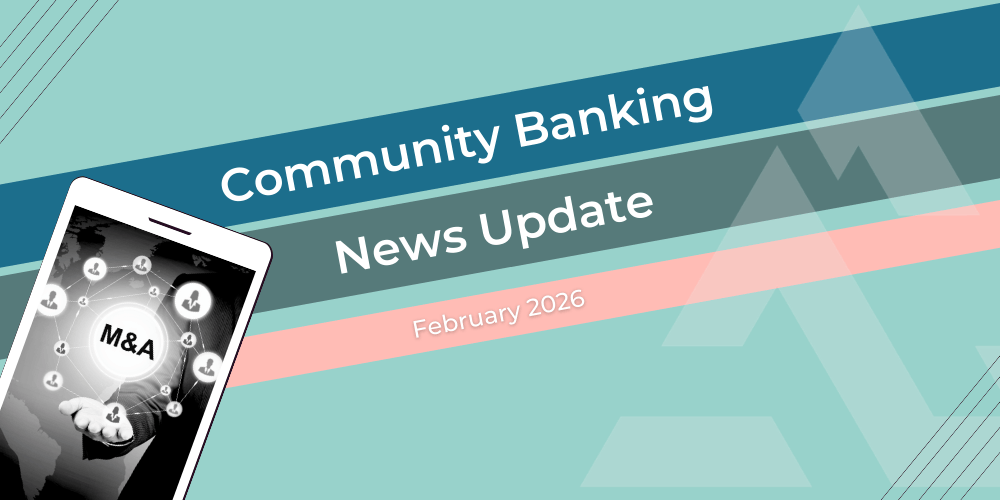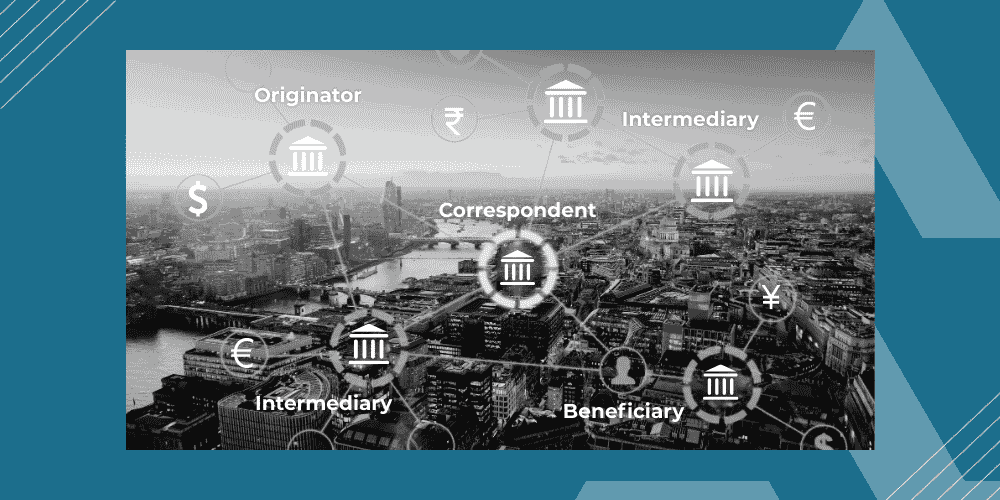This month’s major stories in community banking and their impact.
Welcome to this month’s Community Banking News update, your go-to roundup of the biggest news developments affecting community banks and credit unions — plus why they matter. Last month, we covered core provider updates, an instant payments surge, and more. (Missed it? Catch up here.)
This action-packed month, regulatory and fintech developments continue to reshape the financial landscape, with the Treasury Department phasing out paper checks, the FDIC easing rules on crypto, the Senate voting to overturn the CFPB’s overdraft fee rule, Fed Governor Michelle Bowman being nominated to lead bank supervision at the Federal Reserve, and major fintechs expanding their banking offerings, and much more! What do these developments mean for community banking institutions? Read on to find out.
1. FDIC Supervisory Reform and Crypto Rule Easing
The Federal Deposit Insurance Corporation (FDIC) is making significant changes to its supervision and regulatory approach, impacting both cryptocurrency-related activities and reputational risk evaluation.
- Crypto Rule Easing: In a Financial Institution Letter (FIL-7-2025), the FDIC rescinded prior guidance requiring banks to obtain approval before engaging in cryptocurrency-related activities. Banks can now pursue permissible crypto activities without prior FDIC approval, provided they adequately manage associated risks. Acting FDIC Chairman Travis Hill indicated that further guidance will be provided to ensure banks adhere to safety and soundness standards while exploring digital assets.
- Reputational Risk Removal: The FDIC is eliminating reputational risk as a standalone supervisory category. Defined as “the potential that negative publicity...will cause a decline in the customer base, costly litigation, or revenue reductions,” reputational risk will no longer be a focal point of FDIC supervision. The Office of the Comptroller of the Currency (OCC) has also indicated a similar shift in its approach.
Why This Matters to Community Banks and Credit Unions:
These changes reflect a broader effort by regulators to refine their focus on quantifiable financial risks while easing compliance burdens. Removing reputational risk from supervision may simplify compliance processes for community banks and credit unions, allowing them to concentrate on more measurable financial and operational risks. Additionally, the easing of crypto rules presents new opportunities for institutions to explore cryptocurrency-related services without the need for prior approval, provided they implement strong risk management practices.
Regardless of any new rules, it remains essential for financial institutions to maintain a robust AML program that effectively identifies and mitigates risks, ensuring transactions are conducted safely, transparently, and in full compliance with regulatory standards.
Read the article from our Co-Founder and Chief AML Officer Sarah Beth Felix:
2. U.S. Government to Phase Out Paper Checks to Curb Fraud and Cut Costs
The U.S. government is moving to eliminate paper checks for federal payments by September 30, 2025 per President Donald Trump’s executive order, shifting instead to electronic payment methods such as direct deposit and digital wallets. The Treasury Department cites concerns over check-related fraud, which has become increasingly prevalent and costly, as well as the high expense of printing and processing paper checks. The agency now has about six months to complete the transition, which includes phasing out paper checks issued for a variety of purposes, such as tax refunds and Social Security checks.
Why this matters to community banks and credit unions:
The phasing out of paper checks has significant implications for community banks and credit unions. Paper checks have long been a major target for fraudsters, and their elimination is expected to reduce fraud incidents considerably. For smaller institutions, this shift can enhance security and decrease costs associated with check fraud losses. However, community banks and credit unions serving unbanked or underbanked populations may face challenges helping those customers transition to digital payments. At the same time, this presents an opportunity to promote digital banking solutions and expand customer engagement through education and support. By proactively guiding customers through this change, community banks and credit unions can mitigate fraud risks and strengthen relationships.
3. CFPB Overdraft Rule Faces Senate Pushback
The Senate recently voted 52-48 to overturn the Consumer Financial Protection Bureau’s (CFPB) overdraft fee rule, which aimed to cap overdraft fees at $5. The measure is expected to pass the House before reaching the Oval Office for final approval. If reversed, the rule’s limitations on overdraft fees would be rolled back, potentially restoring greater flexibility to banks and credit unions in designing their fee structures.
Why This Matters to Community Banks and Credit Unions:
The potential repeal of the CFPB’s overdraft fee rule offers relief for community banks and credit unions that rely on overdraft fees as a revenue source. Rolling back the cap could allow institutions to tailor overdraft fee structures to better suit their business models and customer needs, particularly as they seek to balance profitability with regulatory compliance.
4. Michelle Bowman Poised to Lead Federal Reserve Bank Supervision
Michelle Bowman, a member of the Federal Reserve Board of Governors, has been nominated to be the Vice Chair for Supervision — the Federal Reserve’s top regulatory role. If confirmed, Bowman would oversee Fed supervision and bank stress tests, present regulations to the full board of governors, and collaborate with FDIC and OCC leaders. Bowman has called for a review of the Dodd-Frank Wall Street Reform and Consumer Protection Act of 2010. She has also emphasized the need for reducing regulatory burdens and has been an advocate for a less rigid way of defining regulatory tiers.
Why This Matters to Community Banks and Credit Unions:
If Bowman is confirmed by the Senate as the Fed’s top regulator, community banks and credit unions may see a more tailored approach to regulation that considers the distinct challenges smaller institutions face. A former community banker, Bowman’s focus on easing regulatory burdens and fostering innovation may result in policies that are less one-size-fits-all and more accommodating of the operational realities of community banks and credit unions. Her approach could also prompt changes in how institutions are supervised, particularly in areas related to innovation and technological adoption.
5. Fed Holds Rates Steady — All Eyes on June
The Fed voted to keep interest rates unchanged in March, holding the benchmark rate at 4.25% to 4.5%, citing persistent inflation that remains above the central bank’s 2% target. However, Fed Chair Jerome Powell maintained that policymakers still anticipate two 25-basis point interest rate cuts by the end of the year, assuming inflation continues to cool. Markets are now eyeing the Fed’s June meeting as the likely kickoff for easing, though recent price data and uncertainty over the effects of tariffs could delay action.
Why This Matters to Community Banks and Credit Unions
A potential rate cut later this year could bring much-needed relief to community banks and credit unions squeezed by high funding costs and margin pressure. Still, the timing remains uncertain. Community banks will need to continue managing interest rate risk carefully, especially if inflation proves stickier than expected. Flexibility in balance sheet strategy and a focus on non-interest income will be key in navigating what’s shaping up to be another unpredictable monetary policy cycle.
Read our article about ways to boost non-interest income through international payments:
6. Fintechs Expand Banking Offerings with Credit, Deposit, and Wealth Management Products
Trading app Robinhood unveiled a banking platform that offers both checking and savings accounts to its premium customers. Through its bank partner, Coastal Community Bank, Robinhood Banking will offer 4% APY for its upcoming savings account. Robinhood also plans to launch an AI investment tool called Robinhood Cortex and a wealth management tool called Robinhood Strategies, which will charge a .25% annual management fee, and an annual cap of $250 for Gold members, who pay $50 a year for a subscription.
Meanwhile, Chime has begun offering instant $500 personal loans to pre-approved customers with no credit checks, a new credit product designed to offer short-term flexibility for users with recurring direct deposits. These moves reflect a growing trend of fintechs bundling more traditional banking products into their digital platforms.
Why This Matters to Community Banks and Credit Unions
Fintechs like Robinhood and Chime continue to blur the lines between banking and tech, rolling out products that directly compete with core offerings of community banks and credit unions — from personal loans to deposit accounts. Robinhood has gotten its share of consent orders, but that does not seem to be slowing its push further into banking. And while these products often target different customer segments, they shape consumer expectations around speed, transparency, and mobile-first access.
For community institutions, this underscores the need to evaluate both product offerings and user experience. Competing on rate or relationship alone may no longer be enough; instead, digital delivery, automation, and personalization will be critical in retaining and growing market share.
To read more about international wires automation, read our article:
7. Fintechs Accelerate Push for Bank Charters with Fresh Momentum
After a lull in activity, fintech firms and crypto companies are renewing efforts to secure national bank charters, motivated by the desire to expand product offerings, lower their cost of funds, and gain direct access to the payment system. The strategy allows them to sidestep reliance on third-party banking-as-a-service partnerships and reduce regulatory uncertainty tied to partner bank relationships. In a major milestone, SmartBiz — the small business lending fintech — acquired CenTrust Bank, N.A., a $148 million institution, and received regulatory approval to become a bank and bank holding company. It’s the first fintech acquisition of a bank to gain full approval in several years and signals that regulators may be warming slightly to well-structured charter bids from fintechs with established business models.
Why This Matters to Community Banks and Credit Unions
For community banks and credit unions, this trend raises the stakes on digital transformation and underscores the need for strategic clarity. Institutions must consider whether to compete head-on, or partner with fintechs. As the regulatory landscape shifts to accommodate more fintech entrants, community institutions will need to remain flexible and proactive to maintain relevance and trust in a rapidly evolving market.
Acceleron is in the process of becoming a full-fledged correspondent bank so that we can expand our international payment services to support community banks and credit unions. Read about our de novo process here: https://acceleronbank.com/acceleron-bank-in-formation
Acceleron builds patented software that allows community banks and credit unions to conduct international payment transactions profitably through a correspondent banking marketplace. Serving over 200 financial institutions and facilitating more than $1 billion in international payments annually, Acceleron helps small banks generate non-interest income and compete more effectively with high-fee big banks. Our solutions integrate seamlessly with top payments platforms, ensuring quick implementation and smooth operation.
Subscribe to our monthly newsletter, "The Exchange," to stay ahead of the curve and get original content you won't find anywhere else!
 Daisy Lin, Head of Marketing, Acceleron
Daisy Lin, Head of Marketing, Acceleron



-1.png)


